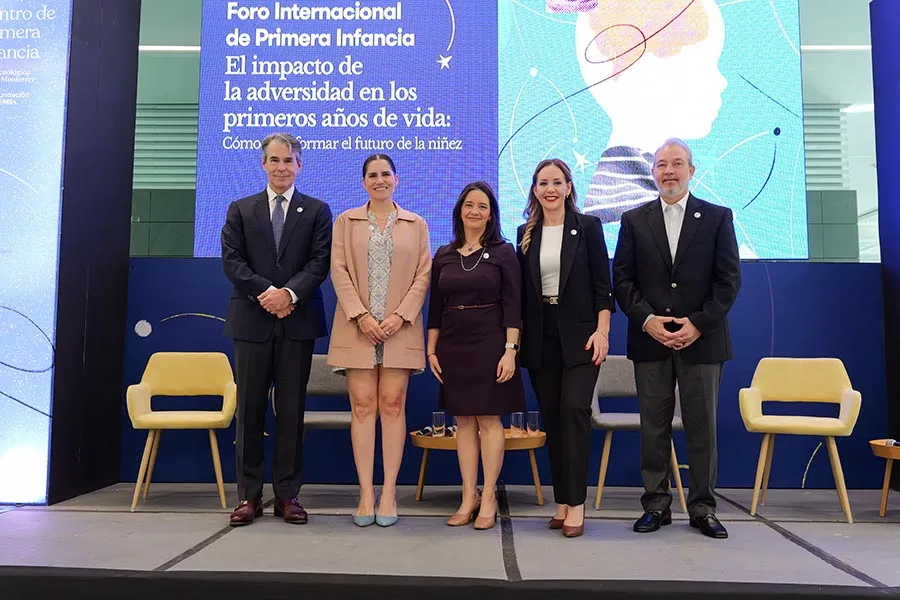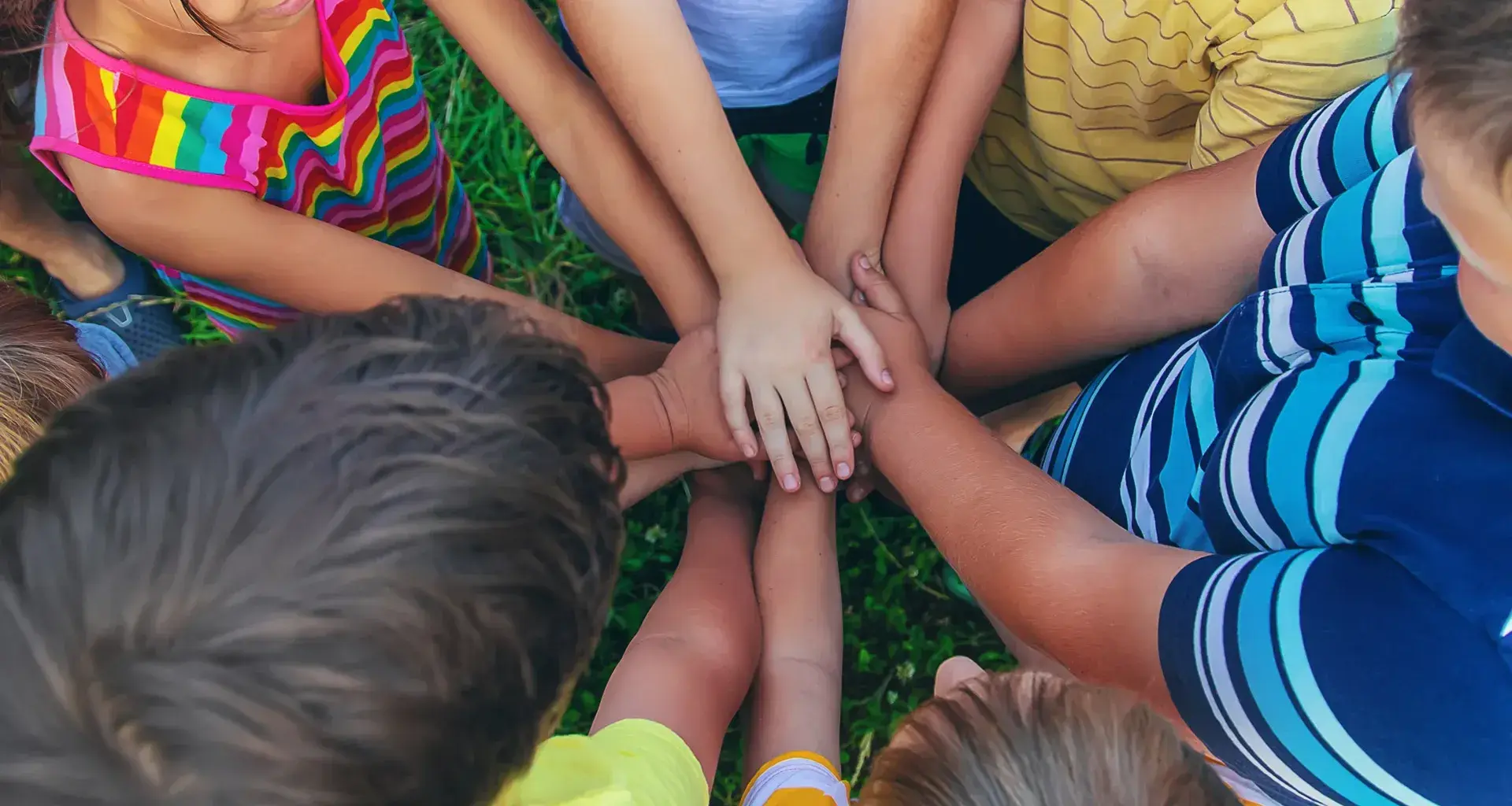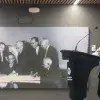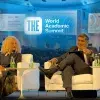Did you know that humans can develop one million neural connections during their first one thousand days of life?
This stage, which is considered crucial for physical, emotional, and intellectual development, is known as early childhood.
To this end, Tec de Monterrey and the FEMSA Foundation have launched the Center for Early Childhood, which seeks to promote the holistic development and wellbeing of children in early childhood.
“The center came about in a context in which the discussion around early childhood was at a turning point,” said Adriana Gidi, Associate Director of the Center for Early Childhood.
“Research in recent years, especially in neuroscience, shows that the first six years of life carry much more weight in people’s development and have a determining effect on people’s physical and mental health,” she added.

The pillars of the Center for Early Childhood
Center director Manuel Pérez explained that its main role is to generate knowledge and disseminate science for the benefit of children.
“The aim was to link the two missions of the two institutions, the foundation with a thoroughly social approach and the Tec as a university that includes the wellbeing mission.
“A very important point to make is that it’s not a center for social assistance, but rather it’s for disseminating science and knowledge to generate appropriate opportunities for little girls and boys,” said the doctor.
In Mexico, 5 out of 10 children under the age of 6 live in conditions that affect their development.
What’s more, the Organisation for Economic Co-operation and Development (OECD) points out that investing in early childhood can generate growth in Latin American regions.
This center’s work is based on four pillars:
- Research
The aim is to generate scientific knowledge through cross-cutting research and assessment.
- Communication
The aim is to translate and disseminate knowledge and evidence on Early Childhood.
- Education
The aim is to train key stakeholders in the Early Childhood ecosystem.
- Outreach
The aim is to create spaces for connection and outreach between the different actors in the ecosystem.
“A thorough investigation was carried out between what exists in the world and what our country needs,” Gidi said.
“We came to the conclusion that we were going to work on the research axis to produce evidence that would allow us to collaborate or contribute to the creation of programs and policies that positively impact the environment where children are growing up,” she added.
Learn about the four projects the Center’s work begins with
Adriana Gidi and Manuel Pérez shared with CONECTA the four lines of work the Center for Early Childhood began with:
1. . Adverse childhood experiences
This line of work focuses on identifying and addressing adverse experiences that affect children in their early years of development.
Adverse events are situations that have a negative impact on children, both emotionally and physically, and can have lasting effects throughout their lives.
Some of the adverse situations that may occur in childhood include physical and emotional abuse, domestic violence, poverty and extreme socioeconomic situations, migration, climate change, among other things.
2. Toxic stress
Toxic stress is a type of chronic, excessive stress that can result from prolonged or intense adverse childhood experiences, such as abuse, neglect, domestic violence, or extreme poverty.
Unlike moderate stress, which is a normal response to challenges, toxic stress can disrupt brain and physical development, affecting both mental and physical health in the long term.
In addition to mental and physical health problems, children may experience complications in their cognitive and emotional development.
Regarding this, Adriana said that they’ve worked alongside researcher Pat Levitt who has focused on this issue.
She said that one of the key aspects of the study is to analyze how family support programs can help reduce the negative effects of stress.
“The center came about in a context in which the discussion around early childhood was at a turning point.” – Adriana Gidi, Associate Director of the Center for Early Childhood.
3. Support for caregivers
The third line of work is focused on supporting infant caregivers, particularly those facing high levels of stress.
To this end, collaboration is carried out with the Stanford Center on Early Childhood to understand the needs of those responsible for caring for children.
Aspects that can be researched for this topic include identifying the needs of caregivers and detecting the factors affecting them.
4. Skills development
The fourth line of work focuses on skills development to generate sustainable change in early childhood care and education at the regional level.
This line seeks to strengthen training of leaders and professionals who can implement effective public policies in childcare.
The above can be achieved through certifications in early childhood policies, transformation in early childhood care and education, and training new leaders to address the challenges of early childhood care.
Furthermore, last November, the International Forum on Early Childhood was held, which brought together experts on the subject from Mexico and abroad.
International Strategic Partners
Via international strategic partners, the Center will increase its impact, capacity, and reach.
These collaborations are with:
- The Center on the Developing Child at Harvard University
- Georgetown University Center for Child and Human Development
- The Stanford Center on Early Childhood
The Center has also formed a key alliance with La Tríada, consisting of the Pontifical Catholic University of Chile, the University of Los Andes, and Tec de Monterrey.
The Center for Early Childhood
This center was announced in May 2023 after the signing of an agreement for its creation at Tec de Monterrey.
Present at the signing were David Garza, then Rector and President of the Tec; Francisco Camacho, Chief Corporate Officer of FEMSA; Guillermo Torre, Vice President of Research at the Tec; and Lorena Guillé, Director of the FEMSA Foundation.
The Center was inaugurated on November 28, 2023, as part of the 1st International Forum on Early Childhood, held at the Monterrey campus.
This center’s activity is led by Manuel Pérez, Regional Dean of the Tec’s School of Medicine and Health Sciences, as director; and Adriana Gidi, as associate director.
{"preview_thumbnail":"/sites/default/files/styles/video_embed_wysiwyg_preview/public/video_thumbnails/3ATqfBWGPOU.jpg.webp?itok=gIqo5CW5","video_url":"https://www.youtube.com/watch?v=3ATqfBWGPOU","settings":{"responsive":1,"width":"854","height":"480","autoplay":0},"settings_summary":["Embedded Video (Adaptable)."]}
ALSO READ:





